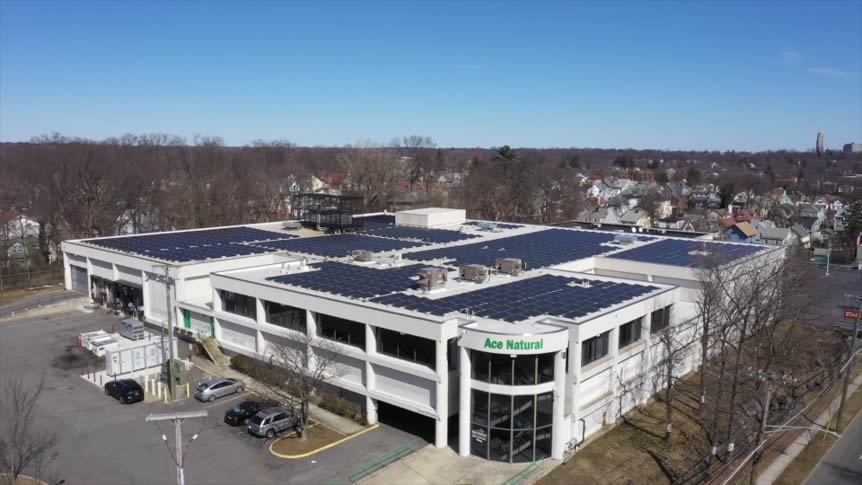As we approach our 8th Annual HOMER International Microgrid Conference (October 12-16), this month we will begin to preview the dynamic presentations being scheduled.
To kick-off our conference preview, we feature an article about a microgrid in New York that was built to provide resilient backup for a food distribution facility. The article demonstrates the growing recognition that built-in resilience—made possible by microgrids—makes economic sense for businesses that depend on power. Microgrids enable businesses to avoid the losses that can result from extended power outages, as well as save money by using renewable energy. Another economic benefit: by being able to model microgrid systems, installer Solar One Energy has expanded their solar business to include more valuable microgrids with storage.

As the need for resilience continues to grow in importance, our virtual conference will feature multiple presentations about microgrids for a variety of emergency esponses, such as hurricanes in the East Coast, wildfires in the West, Australia, the Mediterranean and elsewhere, and refugee camps that are becoming more common all over the world.
In the next few newsletters we will preview other presentations coming in our upcoming virtual conference. We are very excited that attendance will be free. Registration will open soon so stay tuned for an announcement.
We also have an article on our new EV charging module for HOMER Grid. The electric utility industry continues to be buffeted by new technology. First, it was low-cost renewable energy. Although renewable energy really helps utilities with the challenge of climate change and is now the least cost source of electricity, it has also required utilities to adopt new planning and operational methods. Next came the advent of low-cost battery storage, which has many benefits, but also requires new planning and operational methods.
Now, utilities face the challenges that electric vehicles (EVs) present. EVs represent a substantial and new demand for electricity, but quite a different one in important ways. And like the new technologies of renewable energy and battery storage, EVs can be tremendously beneficial to utilities, but will require additional changes to their operations, distribution infrastructure, and tariff structures. HOMER Energy by UL is thrilled to be able to help utilities, their power producers, and customers adopt these new technologies and adapt to them.
Finally, we completed the roll-out of our new Powering Health web app, a simplified web interface to HOMER to help provide power for the response to the COVID-19 pandemic in developing countries. It has only been out for a couple of weeks and has already had 400 users. You can listen to the recorded webinar.
Join us at the Virtual 8th Annual HOMER International Microgrid Conference, October 12-16, 2020.
This year’s virtual conference will be FREE, and we hope to welcome people from all over the world to join us. Topics will include distributed energy systems for resilience and cost-cutting; energy access; microgrid controllers and other technology innovations; case studies of microgrids in island and Arctic environments. Registration will be open in early August. Please visit the HOMER International Microgrid Conference site to learn more.

It looks as though there is one problem with high kW automotive aside from excess weight (approximately 60% more than a petrol car, which reflects on manufacturing LCE and against industrial trend). Batteries should be exchanged at distributor should there be ever a unique battery standard. This would allow charging according to optimal grid loads and pricing, thus more efficient use of electricity and would speed up recharging ops. Currently, cost of refueling is way too high, refueling times are way too long, safety may be a future issue. Instead swapping charged batteries with exhausted at distribution would allow for EV acceptability and smoother transition. Robotics and automation backed by intelligent car design can allow this operation in minutes. Just a further thjought for a technology (EV), which apperas obsolete even before mass commercialization. Rgds
Dear Fred,
Thank you so much for your thoughtful comment.
All the best,
Lili